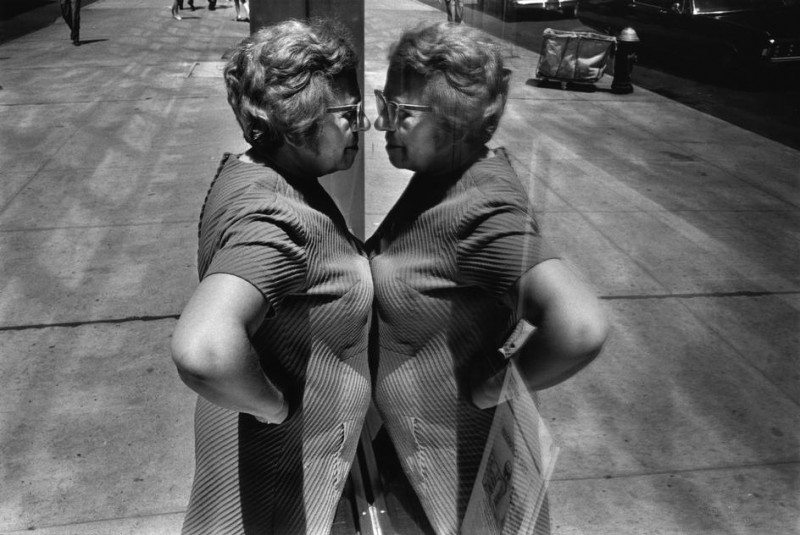
I recently came upon this superb publication by IdeasTap and Magnum. In this magazine, there are exclusive interviews with 12 Magnum photographers– spanning from advice for young photographers, difficulties in photography, and their thoughts on technology. I included my favorite quotes from the magazine in the feature below, enjoy!
Advice for Young Photographers

Jonas Bendiksen:
“Be a person before you’re a photographer. Your interactions with people are better if you are yourself, a human being, more than a photographer, and if people see you like this, usually the pictures become better.”
Alex Webb:
“There’s a big difference between taking pictures to make money and taking photographs because you believe in them. There are plenty of photographers who’ve done great work in their lives and haven’t been professional photographers; I think
of Ralph Eugene Meatyard, who was an eye doctor. There’s nothing wrong with uncertainty about which directions to go in but you have to believe in what you’re doing because you’ll have to make sacrifices, and the rewards are generally so fleeting.”
Alec Soth:
“Forget about being a photographer. Be a creative person. I find the workshops I do in my studio as creative as making pictures; in some ways raising money is a creative act. You have to be creative with how you lead your life and not just the things you make.”
David Hurn:
“If you want to be a photographer, you need to be a walker so keep fit. I’m nearly 80 now. The bane of my life is aching bones, so I have to consciously keep fit, because if I don’t do that I can’t do my job. If you want to compete in this world a working day is 10 or 12 hours, so make sure you have comfortable shoes!”
Larry Towell:
“Get away from home once in a while. Work flat out for short periods, three weeks – even two weeks, a week. I tend to work for three- week cycles. Only think photography. The rest of the time you edit, you sequence – you spend more time editing and looking than shooting.”
Moises Saman:
“People make the mistake of only seeking inspiration in their exact field of interest. Prospective war photographers, for example, shouldn’t only look at the work of previous war photographers. There’s so much else to be inspired by. I find people from a totally different background – the art world, or painting – bring something more organic to their approach. And it’s important to find one story that only you can do, and perhaps to use that to explain a bigger issue.”
Peter van Agtmael:
“Be careful to not to listen too much to anyone. Trust yourself more than others. I’ve seen people really messed up in their heads because of teachers who think they know exactly what they’re talking about and are imposing their view, which is not necessary positive for growth. Look at as many types of work as possible. Look at the whole history of photography. People think that photography is a romantic job but if you want to succeed you have to be completely obsessed with it.”
Richard Kalvar:
“Travel a lot; try to go to places where interesting things might happen. In the late 60s, after I worked as assistant for the photographer Jerome Ducrot, I saved up a little money and came to Europe to hitchhike with the camera he gave me as a present,
and a couple of lenses. I wasn’t there to photograph –[travelling round Europe] was one of the things that people did back then. I started taking a few pictures. I wouldn’t say it was a project, but by the time I went back, after 10 months, I was a photographer. That’s the thing that changed my life the most, that trip.”
Thomas Dworzak:
“Learn something else. Photography isn’t that complicated; you can learn to take pictures by yourself. Photography is about life and experience. Put yourself in a position where you take a lot of pictures. Don’t study photography. Don’t think about it too much. Try to experience something and express that experience through photography.”
Thomas Hoepker:
“Think before you press the shutter. It’s frustrating that today, even more than in the time of analogue photography, you often come back with a lot of junk. Nowadays, it’s too easy to get a picture – click-clack; the camera works for you, but you need to use your brain, look closely and react fast. Don’t go out and expect that things will be wonderful – photography is hard work!”
Nikos Economopoulos:
“Be honest with yourself and be original. Don’t try to convince others that you’re something you’re not. The experts in photography, like my peers at Magnum, can see quickly if your work is original or not. Without originality you won’t get far in this industry. Go in the direction that you feel,
not where the market tells you to go. If you follow this advice, and have a natural eye for a good composition, you will stand a chance of making it as a photographer.”
On Books & Projects

Larry Towell on Editing Books:
In terms of the book, [it’s the] same idea– I make my books with scotch tape and photocopies. From there, when it’s time to publish, you get a designer and you refine it. You show it to people to get feedback and you struggle with it. You struggle with language, editing, sequence; you struggle with making this element work with that one. Sometimes you put things together that don’t naturally belong so you have to force them together. You have to build a bridge. I try not to edit with structure; I edit on emotion.
Alex Webb on Preconceived Notions and Projects:
When I work on a project for myself, I may read a guidebook to get the general lay of the land; I may read a novel set in the place, to give me a sense of what some writer felt. And then I go and start working. I come back, look at the work and then start reading, because
I want my visual knowledge of the place to develop at the same pace as my intellectual knowledge. I feel with certain projects that if I read too much I start trying to force things. I look at things and say, “Ah well that’s symbolic of that and so it’s interesting to photograph,” whereas if I’m just there photographing I see things that might contradict those symbols.
Challenges to Overcome in a Photographic Career

Jonas Bendiksen:
“The toughest thing is keeping up your creative energy and inspiration over the long haul – it’s not a sprint, it’s a marathon. You have your ups and downs, and that affects your appetite for going out into the world and creating work. It’s important not to lose the joy of doing photography and to always find your way back to the source of that. It could be by doing something completely different: reading books, looking at something, engaging with certain people – anything. For me it’s essential to maintain that balance between photography and the rest of my life.”
Richard Kalvar:
“People sometimes get upset with me for taking their pictures. Working in Naples was a little scary. I was with someone who knew Naples very well, but people kept telling me to “Be careful’, because lots of people have the police looking for them; others are supposed to be under house arrest, while they’re actually in the streets.”
David Hurn:
“I discovered my mother dead. I‘d gone over to take her out, but when I got there she was dead. I had the dilemma of whether to photograph her or not. I did it, partly, because she had a smile on her face. I thought that if she had a smile on her face then she probably didn’t die in pain. I felt that visual memory would probably sustain me in the future. But it’s not a picture I’ve ever shown anyone else.”
Thomas Dworzak:
“Being a nominee in Magnum. I didn’t like it. It’s traumatising. I was 28 or something and suddenly you show up with all these big, famous people and everything is intimidating.”
Nikos Economopoulos:
“Once when I was in Albania in the 90s, a drunk guycameuptomycarandputaguntomyhead. Throughout my photographic career, I’ve found it difficult to reason with people when they’re drunk or have taken drugs. As a documentary photographer, you’ll always find yourself in difficult situations, be it in a conflict zone or something less expected, like this incident in Albania. When faced with these situations you have to stay calm and remember your motivation for working on the story or project.”
Alex Webb:
“There have been a number of dangerous situations. There was one, during the election in Haiti; it was the only time I’ve been shot
at specifically because I was a photographer. I’ve been in situations where there was shooting or bombing or violence but it hasn’t necessarily been directed at me. This one was, and that was very intense.”
Peter Van Agtmael:
“War zones are usually the hardest because there are so many things you need to be careful about – who you go with, for instance. It’s not only a question of getting the picture, it’s also a question of getting to the place where you can get the picture and then getting out.”
Moises Saman:
“Two years ago, two close friends were killed in the same event, and that’s probably one of the hardest things I’ve dealt with. It’s
part of war, but it’s a very, very sad feeling – especially if you know them well.”
Bieke Depoorter:
“The most difficult thing is getting lonely travelling. As soon as I’m on the plane, going to take photographs, I’m thinking ‘Oh my God, why I am doing it, again?’ But as soon as I start experiencing wonderful moments with people I meet in my travels, I forget about this. When I can’t capture the moment that I want to – that’s also something you’re scared of. I can come back from one month’s working with only one photograph that I like..”
On Technology and Photography

Abbas:
“Anybody can take pictures; photography’s
a very easy thing. You can give a camera
to a baboon [and it will learn to take photographs]. The problem isn’t taking photographs, or taking good photographs, the problem is having a language; a vision as a photographer.”
Christopher Anderson:
“In this age, craft and technique are useless commodities. The only thing that has
value for you as a photographer now is your uniqueness, your individuality and authenticity. Those are the things you trade on.”
Thomas Dworzak:
“I don’t care if somebody takes a picture with an iPhone or with a washing machine [as long as it looks good].”
Follow Magnum
If you love the work of Magnum Photographers, I recommend checking out this article I wrote on “Magnum Contact Sheets“.

